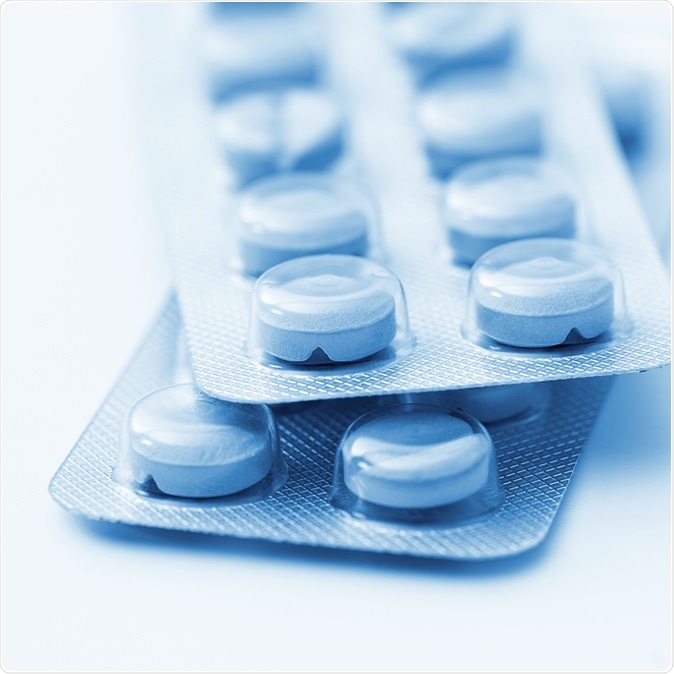According a new study that appeared this week in the journal Proceedings of the National Academy of Sciences, simple pain reliever, Ibuprofen, could be having a problematic effect on the testes of young men. Ibuprofen is taken almost routinely by young athletes for injuries and pain.

Image Credit: R.Classen / Shutterstock
This study finds that doses that are routinely taken by athletes when taken by a group of young men, change and alter the hormonal balance and leads to infertility as the person ages.
Ibuprfoen is available over-the-counter for pain and fever and this is the first time that such an effect of this long used medication has been noted. Bernard Jégou, co-author and director of the Institute of Research in Environmental and Occupational Health in France said that this study was part of another ongoing study that was looking at effects of this drug on pregnant women.
Jégou along with his French and Danish colleagues were looking at the effects of aspirin, acetaminophen or paracetamol and Ibuprofen on pregnant mothers around the world. They have found that these drugs have an impact on the testes of the male babies that the mothers were carrying in their wombs. David M. Kristensen, study co-author and a senior scientist in the Department of Neurology at Copenhagen University Hospital explained that these drugs were damaging the sperm production in the testes and also acting against the male hormone testosterone and thus could be called “antiandrogenic”. He added that these male babies could likely be born with congenital deformities and problems.
As a follow up from this study, the team went on to look at the effects of Ibuprofen on young men, explained Jégou. This is a routine agent that is used as a pain reliever by many. They included 31 male volunteers aged between 18 and 35 years. Of these, 14 were given daily doses of ibuprofen 600 milligrams twice a day – a dose commonly taken by athletes and soccer players for injuries and pain and dose that is directed by the labels of the generic version of the drug. The other 17 participants received placebo or inert pills posing as the drug.
On analyzing the effects, the team found that in the men who were taking Ibuprofen, within 14 days of use, the levels of the luteinizing hormone was fluctuating according to the Ibuprofen levels in blood. Luteinizing hormone or LH, is secreted by the pituitary gland and it is the key hormone that stimulates the testes to produce the male hormone testosterone. It was noted that the ratio of testosterone to LH plummeted with Ibuprofen use. This meant that the testes were not functioning adequately. This eventually lead to infertility or “hypogonadism” and other associated conditions such as increased risk of heart disease, stroke, heart failure and depression.
Jégou said, in these men these hormonal imbalances would be reversible as it was given for a short period of time. However, long term effects of long term use of Ibuprofen may not be reversible he added. He went on to explain that they also followed up this experiment with a laboratory exercise using donated testicular tissues from organ donors. They had the Leydig and Sertoli cells from the testes that produce testosterone normally. Ibuprofen showed an inhibitory effect on testosterone production in these cells too.
According to researchers, this is a small study but more extensive studies in future can shed more light on these deleterious effects of Ibuprofen on male fertility.